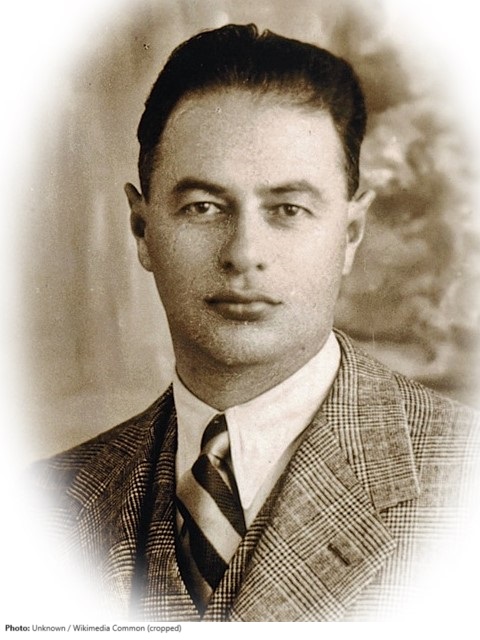Árpád Weisz

Biographical information
| Roles | Non-starter |
|---|---|
| Sex | Male |
| Full name | Árpád•Weisz |
| Used name | Árpád•Weisz |
| Born | 16 April 1896 in Solt, Bács-Kiskun (HUN) |
| Died | 31 October 1944 (aged 48 years 6 months 15 days) in Oświęcim, Małopolskie (POL) |
| Affiliations | Makkabi Brünn, Brno (CZE) |
| NOC |  Hungary Hungary |
Biography
A left winger, Árpád Weisz had a football career with both Hungary and Czechoslovakia, with seven caps with the Magyar national team (1923-23). He played in Italy with Padova (1924-25), with Internazionale Milano (1925-26), followed by training for a season with U.S. Alessandria before returning to the Milano team.
Weisz lead Ambrosiana-Inter to victory in the 1929-30 season as the youngest-ever coach (age 34) and winner of the Italian title, when the 17-year-old Giuseppe Meazza made his first team début. He validated his time with Bologna by bringing the Rossoblù team two titles (1936, 1937). In June 1937 they beat Chelsea F.C. 4-1 at the Exposition Trophy in Paris, the preview to the European Champions Cup. In front of a Parisian audience, the Italian team stunned French spectators and journalists.
At a very young age Weisz was called to arms by the Austro-Hungarian Army and was taken prisoner by Italian troops. In 1938, Weisz was forced to flee Italy because of his Jewish origins. Settling first in Paris and then in the Netherlands, Weisz coached the Dordrechtschte Football Club team with excellent results. In May 1942 the situation began to deteriorate significantly. The Nazi’s had conquered The Netherlands, the Jews were forced to wear a yellow star on their jackets, his children Roberto and Clara had been expelled from school, and Weisz himself was no longer able to work, having been fired from Dordrecht because of a threat from the police station. Initially managing to survive, on 2 August 1942, the Weisz’s were arrested by the Gestapo and a few days later, they arrived at the Westerbork transit camp in the north-east of The Netherlands where Anne Frank died, among others.
On 2 October 1942 the Weisz family left by train bound for Auschwitz and on 7 October, his wife Elena Rechnitzer, and their children, Roberto and Clara, were immediately gassed. Together with about 300 other men, Weisz was sent to the labour camps of Upper Silesia in Koźle, Poland and after 15 months of forced labour, was brought back to Auschwitz, where he died in a gas chamber on 31 January 1944, at only 47-years-old.
Forgotten for almost 60 years, in 2007 Weisz’s name was rediscovered thanks to journalist Matteo Marani, who wrote about him in Dallo Scudetto ad Auschwitz (From the Scudetto to Auschwitz). In 2009, the Municipality of Bologna created the first official commemoration for Weisz with a plaque dedicated to him under the Marathon tower of the Renato Dall’Ara stadium. In 2018, the San Luca curve of the same stadium was also named after him. In 2017 Matteo Matteucci wrote the book Árpád Weisz e il Littoriale and in 2018 Paolo Balbi authored Árpád Weisz: il tempo, gli uomini, I luoghi.
Results
| Games | Discipline (Sport) / Event | NOC / Team | Pos | Medal | As | |
|---|---|---|---|---|---|---|
| 1924 Summer Olympics | Football (Football) |  HUN HUN |
Árpád Weisz | |||
| Football, Men (Olympic) | Hungary |
List mentions
- Listed in Olympians Who Died in Nazi Concentration Camps (Auschwitz concentration camp)
- Listed in Olympians Who Were Killed or Missing in Action or Died as a Result of War (†31 October 1944. Killed in Mauthausen-Gusen concentration camp.)